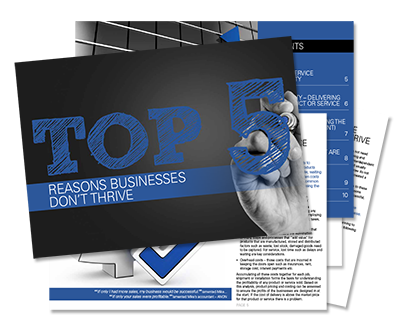THE LINK BETWEEN SPORT AND HIGH BUSINESS PERFORMANCE
As competition has increased, both in Australia and globally, it’s become more critical than ever for manufacturers to clearly understand the competitive capabilities they need to develop to achieve superior business performance.
In the latest two-part episode of my Manufacturing Mastery podcast (Episodes 8 and 9), I sat down with Chris Davey, a process and performance specialist with extensive experience in manufacturing from the ground up, to discover some of the secrets that make high-performance possible.
Chris comes from a sports background and we discussed a great passion of his – the analogy of how the disciplines of sport and, in particular, the martial arts, translate into business to improve processes – well-timed, in light of the Olympics.
PUTTING THE PEOPLE INTO PERFORMANCE
The most important thing to understand about superior performance is that ultimately it’s a merger of both business and human performance.
To drive performance, you need to bring the systems inside a business and the way people like to work – their capabilities and skills – together, so they fit and create positive synergy. This synergy leads to high-performing individuals and a high performing work-team environment – the key to winning business gold.
NURTURING SELF-DISCIPLINE + GOOD HABITS
One of the things that Chris said really sticks out in sports, most notably in combat sports, is that they develop people, either through a grading system, for example, from white belt to black belt, or by amateur boxing or kickboxing processes.
This development requires an instilling of self-discipline and the formation of daily habits and routines that help people do better and be better. It also fosters self-respect. You see these traits in athletes everywhere, from soccer players to long-distance runners.
This mindset of trying for a goal, seeking growth through training, exercise and pushing yourself is something that translates into the business industry really, really well. It creates dedication, self-motivation and employees who can apply themselves.
THE POWER OF A GOOD COACH
Another necessity for sporting success is a good coach – someone who doesn’t manage, direct and correct, but instead mentors and leads athletes to succeed.
Likewise, good leaders in an organisation work to help operators grow and develop that confidence and ability to self-manage and self-direct. These qualities give the business a lot more resilience because individuals have the mental toughness and the confidence to make decisions when things go wrong.
It’s all about nurturing individuals to get those good daily routines going, achieve daily disciple, and feel that sense of achievement. It’s also about ensuring employees feel like they matter, they fit in the team, and they have value.
Just like in martial arts, in business, you need to lead through demonstrating, doing and listening. You need to understand what challenges they’re facing and bring them up the ranks.
LINKING INDIVIDUAL TALENT TO ROLES
You wouldn’t put a great long-jumper into a high-dive event, just as you wouldn’t put a beginner in the Olympics. Equally, you shouldn’t put workers into roles that don’t match their skills or give low-level workers high-end process responsibility.
Capabilities and process maturity need to be aligned to get the best results. This means that as well as measuring process maturity in a factory setting, we also need to be measuring capability in human performance in terms of skillsets, knowledge and personality traits.
To do this, Chris highlighted a whole series of tools that can be used. One of the tools he uses is called the Reiss Motivation Profile, which is, I think, one of the only scientifically validated profiling tools out there.
It works by taking people’s personality traits, such as a high need for independence or order, social contact or status, and using these to match people to the job they’re working in. So it’s less holistic and more about the individual.
MEETING THE CHALLENGE
Sport is also all about meeting the challenge. It’s about being the best and winning, alongside good sportsmanship. Again, the same is true in business today. The challenge is to create the best product and service and win over the competition.
To develop this mindset in business, you really need to engage people. You need to create challenges for them on a regular basis with specific, measurable outcomes, put them into groups and get them to work to solve them. It’s amazing how engaged and how motivated workers become. They want to win the gold.
When people are under the pump or given challenges, they want to step up and will probably outperform just like an athlete. It’s a technique that even works with people you might typically view as unengaged.
Ultimately, achieving high performance in manufacturing, and any business, isn’t just about improving processes. It’s about motivating and focusing on people – a theme that has popped up time and time again.
When employees are given the coaching and discipline of an athlete and matched to the right process, positive improvements happen.
To listen to the full conversation with myself and Chris, as well as other episodes, head to the Manufacturing Mastery podcast section of my website.
Are you ready to be the next success story?

GETTING THE BASICS RIGHT
Pandemic or no pandemic - avoid the common traps that lead to business failure with this free e-book
Submit your details and you'll be given immediate access to download this FREE e-book.
